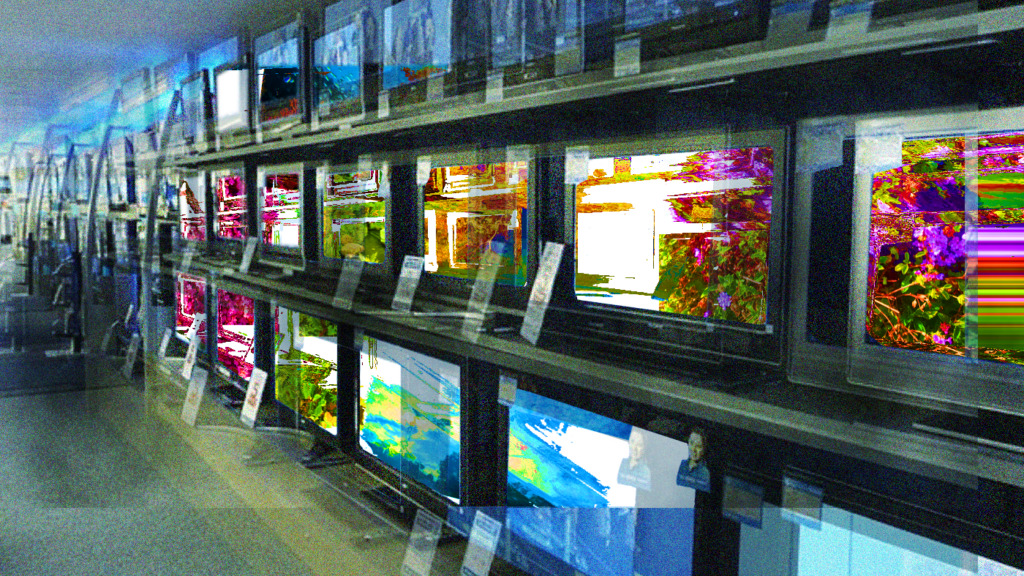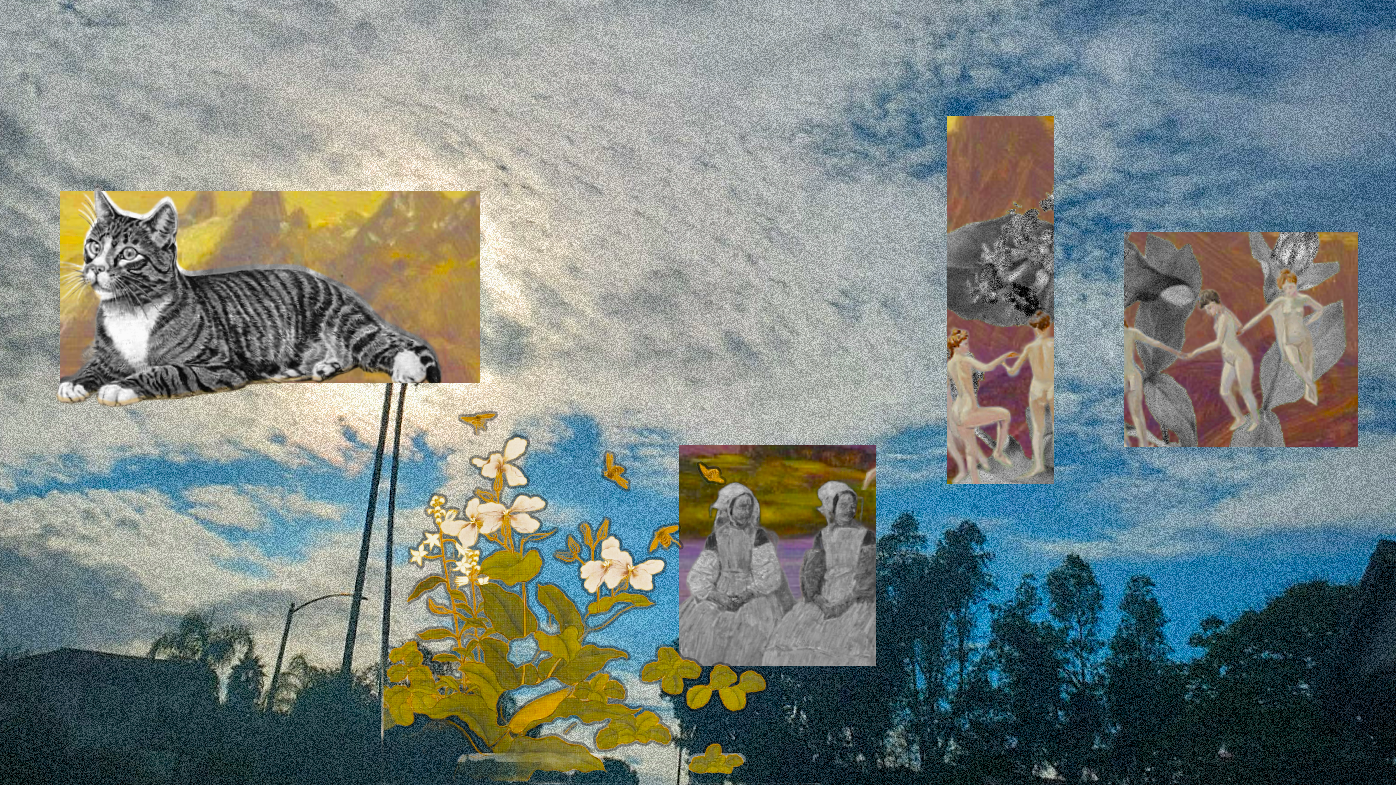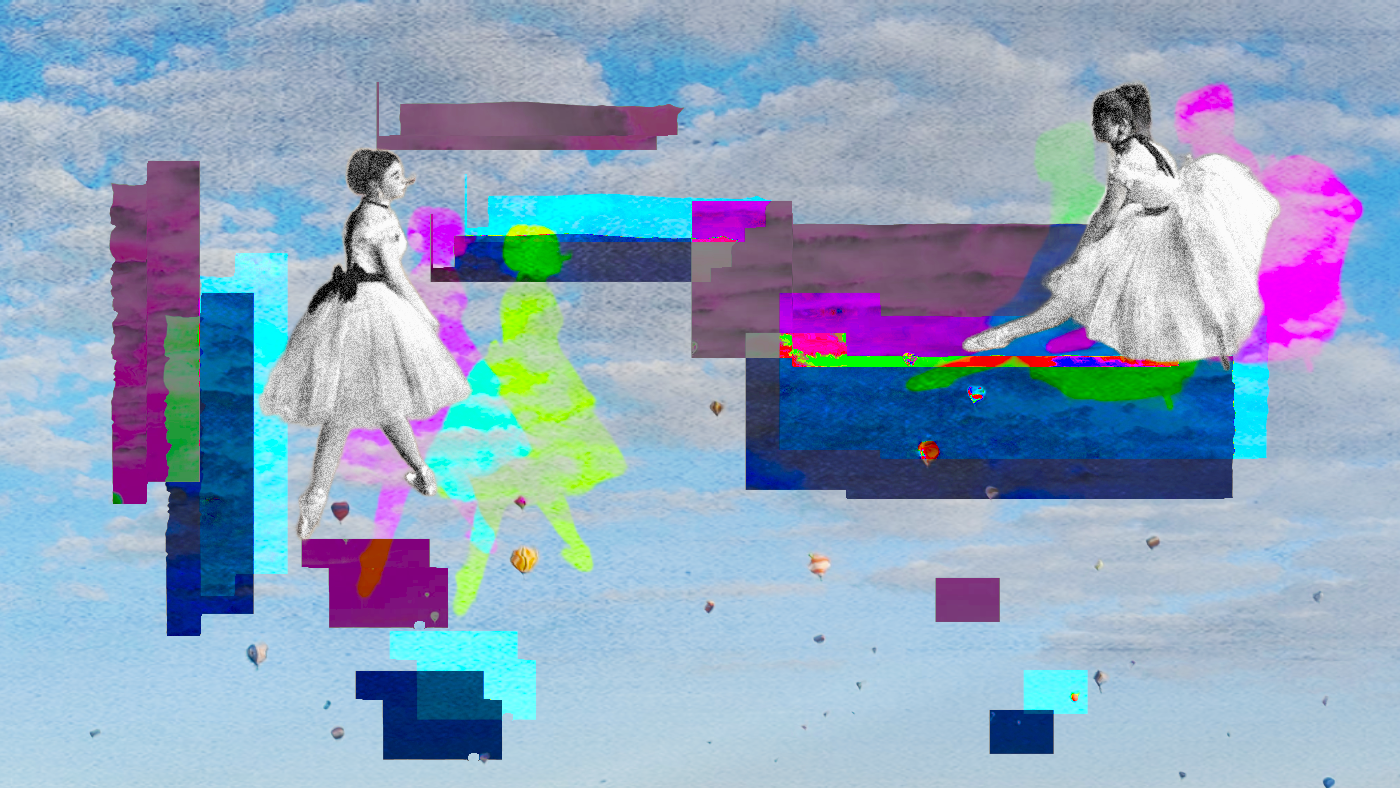The Cloud can’t last forever, librarians warn. Consider how we have no way to read a floppy disk anymore. And what would you even do with a LaserDisc? Its comical face passing like an eclipse.
These days, the camera remembers everything. In the Cloud, memories are easy to find. It’s easy to trust in a higher power.
Your grandkids won’t be able to log in. They won’t want to rifle through all your files anyway.
Where were you on September 1, 2013? Or February 22, 2024? Or December 14, 1997? You don’t remember. Days are readily discarded.
I sat at the library for days, reading VHS tapes into digital memory, hand-scrubbing a time machine. Then, like from behind a dirty mirror: a face my own, from a time not my own.
In school, I was always asking for a new Trapper Keeper. Filing away artifacts of my small living. I was afraid of fire. I was afraid of forgetting. Or worse, of filling in fictions.
How is it that my memories exist in English from a time before I knew that language?
When I step back in the village I grew up in, the elderly recall my warped teeth and happy waddling. My childhood secured there through facial recognition. But their teeth are gold now, hair shining white like silkworm spit. Soon enough, there’ll be no one left to verify my place.
A locked briefcase hibernates atop the family wardrobe, its dust accumulating layers like rock.
Look, the clouds are getting full now, they are low to the ground. The birds are beginning to flee.
The Arctic World Archive holds most of our open source code on microfilm. There lies too: famous novels, digitized paintings, signs of life. A low heartbeat drumming below the permafrost.
You’re still waiting for your life to take solid shape. You write in hopes of forming a container, but there is the matter of time.
Paper disintegrates in six to eight weeks. Minutes if not careful with a spill.
My parents were instructed to only speak English at home, so I could move forward in school. Operational shift. Start clean in a new language.
A cloud is a steam-trapper, memory-sucker, keeping the water from laying its skin against the earth’s.
The night before the deprecation of Flash, we stayed up playing our favorite childhood games. The Impossible Quiz. Bubble Spinner. Line Rider. Then it was midnight; we went back to being adults. Children are trapper-keepers. Adults are those who move forward.
Moment of grief for the landline wires hibernating in the walls of homes; they have lost their purpose.
Under the sea, the internet cables snore soundly, holding one country in each hand.
Some nights, dreams requiring subtitles arrive from another timeline. Full scenes conjured in language needing no thawing. Delicate and deliberate, like a spider web in the attic we never open.
Every memory from the beforelife has a strange patina. Silk printed with a cloud of tin dust. You can see them, but you can’t touch them, or else they will ripple.
“It’s a silent fire,” the librarians say. We won’t be able to keep up with the volume of our archives. We have to be prepared to let go.
I’m fantasizing about adding my poems to the Archive, as I sit on the toilet, surrounded by stall walls’ worth of scratches: “I was here”, in some garish font.
Even under optimal conditions, the Archive will last for 2,000 years. A stone skipping on earthtime.
Someone’s calling me by my old name from behind a camcorder. In the video, I mosey around some grass I no longer recognize, consumed by some long digested sandwich. Six calls before I look back; that year, I named myself in English.
Bits dissipate, magnetic dust to the universe, meeting each other in mid-air, like lovers across a heavenly river.
What’s lost to history comes out as steam from our ears. Floats up to fill the sky. When it rains, you wonder if the same water once lived upon your friend’s tongue.
There’s a girl in Canada who suffers from an inability to forget. What happens to memories that never fade?, asks the teleprompted voice.
If, under duress, I had to write such and such Chinese character, could I pull it out of deep memory? And if I could, does that mean I “know” it?
Every cassette, VHS, and floppy disk still exists. Plastic takes thousands of years to break down, and even then, it only gets small enough to be carried off by wind, or assimilated into natural sediment.
It’s like chasing the architectures of a dream upon half-waking in the morning. I carry them across the bridge to reality. I roll over to my husband, mumbling, I just dreamt of such and such, so he can hold the truest parts of me. Then we let them float away, so the day can begin.
Does the Grand Canyon miss being a river? Or does it like looking at the reminders of flood written upon each layer of rock? Both can be true.




